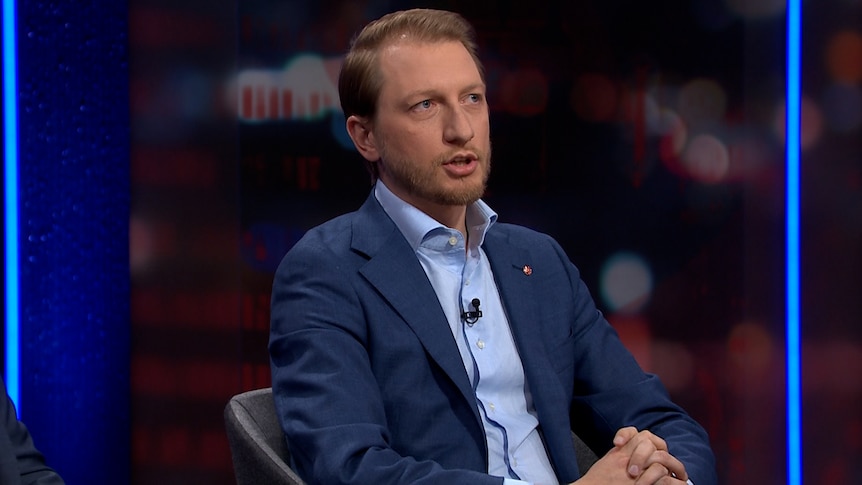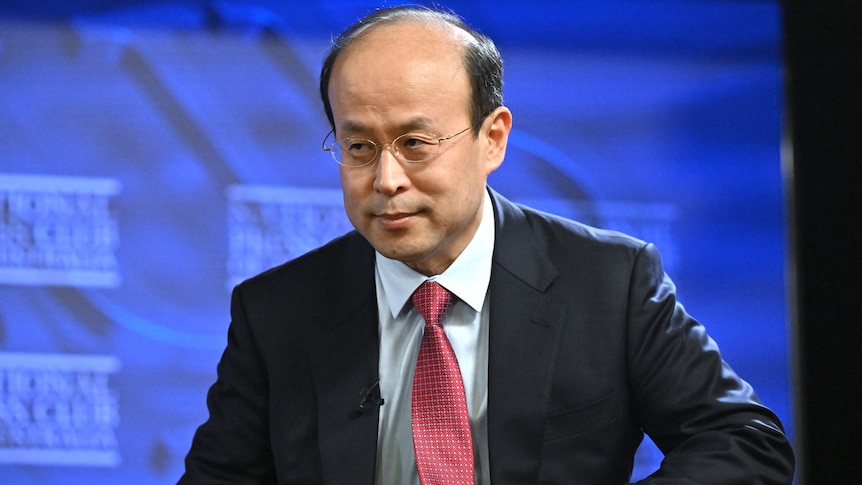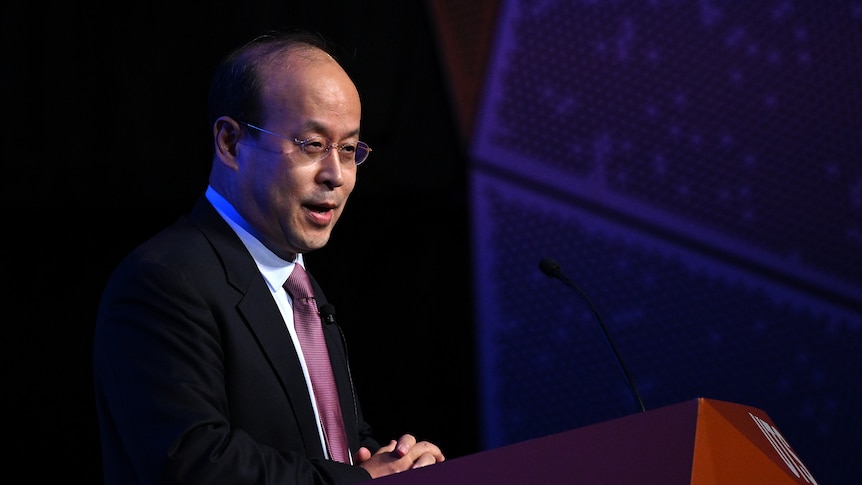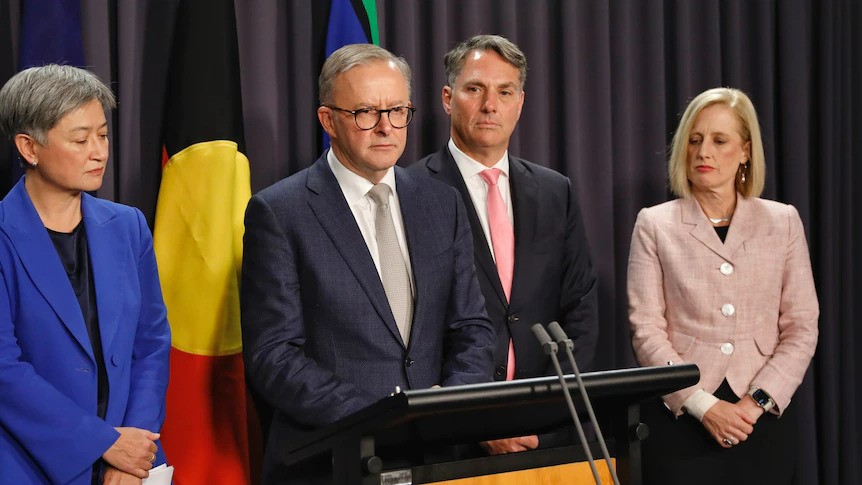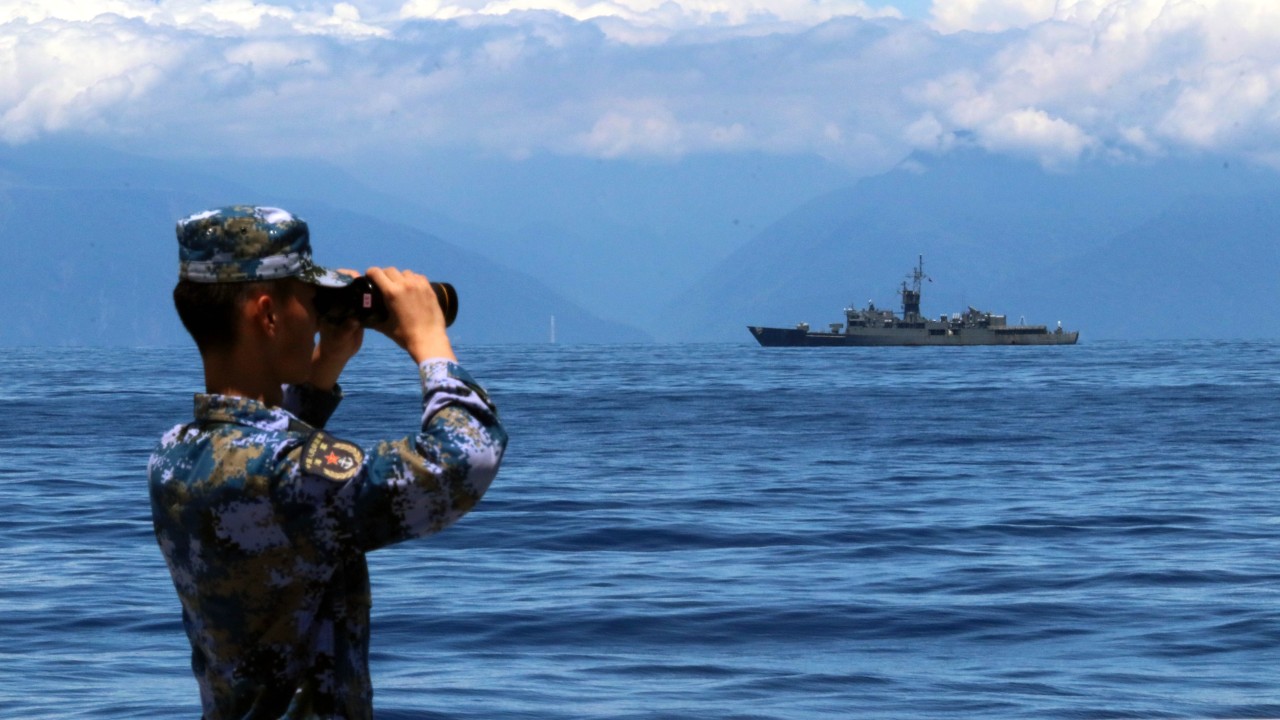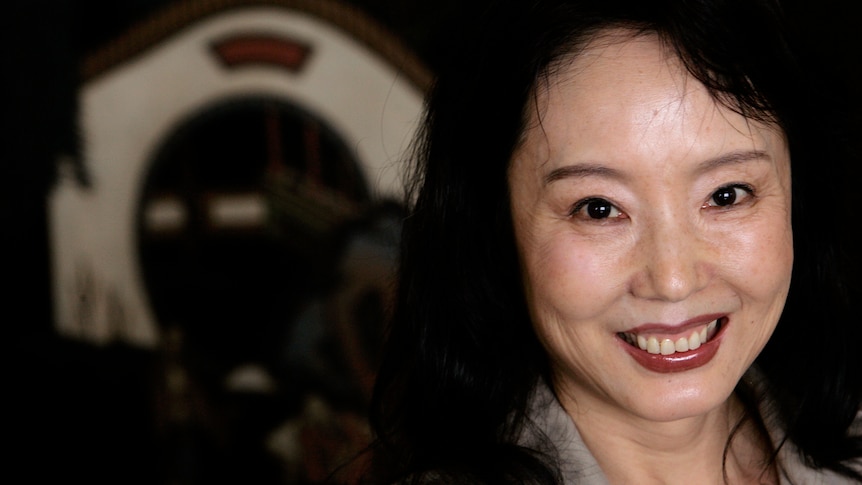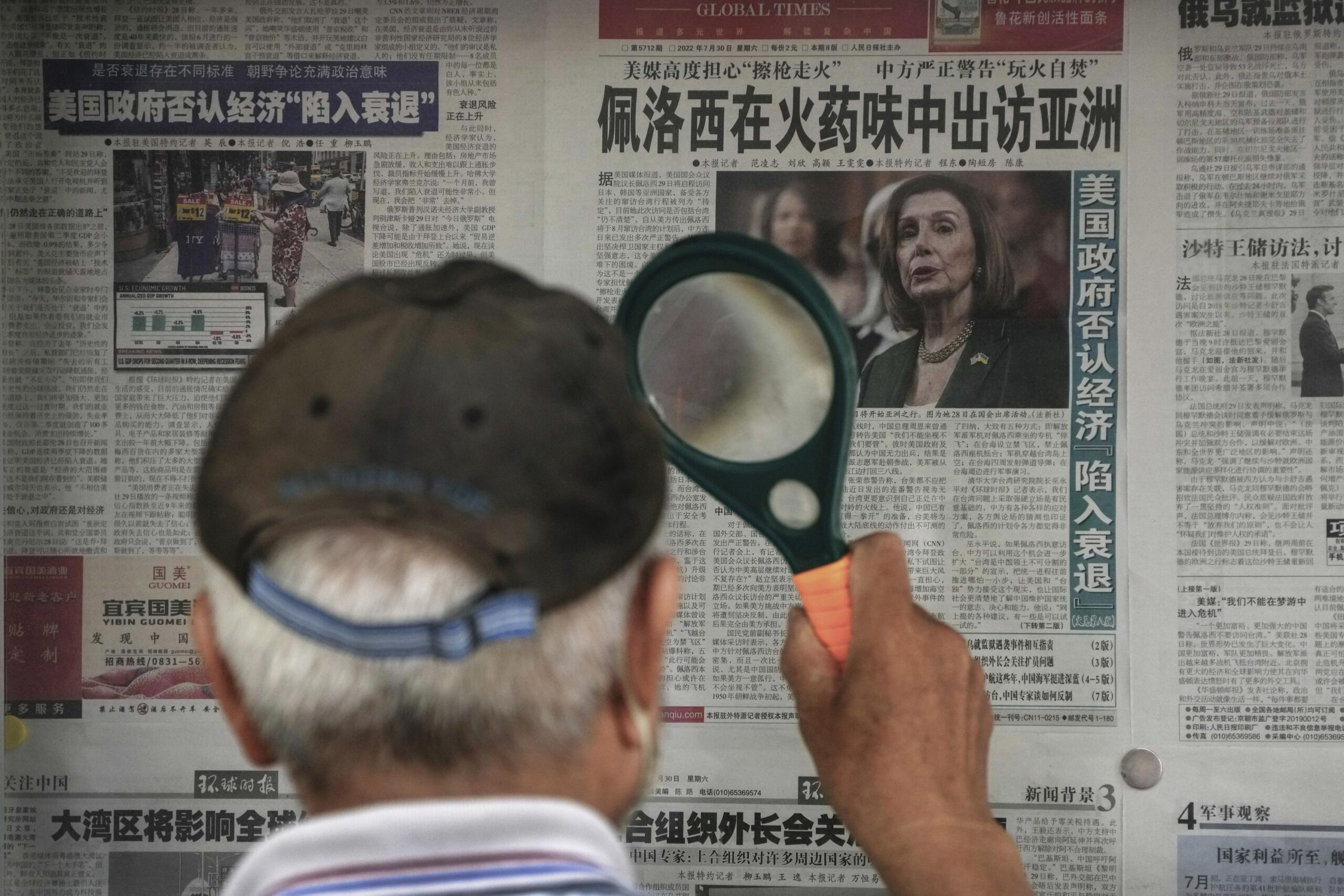The Chinese Communist Party (CCP) has been labeled the biggest threat to Australia’s national security on Q+A, with panellists from both the government and opposition sharing their concerns about China’s actions in the Taiwan Strait and subsequent comments by the Chinese ambassador to Australia.
Key points:
- Minister for the Pacific Pat Conroy called for a de-escalation of tensions with China
- An Australian of Chinese heritage said he has been stigmatized due to COVID and rising international tensions with China
- Senator James Paterson labeled China the biggest threat to Australia’s national security
In the past week, China has conducted military drills in the Taiwan Strait, repeatedly crossing its median line by air and sea and launching missiles that went over Taiwan and landed in Japan’s exclusive economic zone (EEZ).
Those actions came after the Speaker of the US House of Representatives, Nancy Pelosi, visited Taiwan, which China claims to be a state within its territory.
On Thursday night, Q+A audience member Li Shee Shu suggested to the panel that China should not be seen as Australia’s greatest threat.
Liberal Senator James Paterson pounced.
“The reason why the Chinese Communist Party is labeled as the biggest national security threat to Australia is because they are,” Senator Paterson said.
“Right now, today, we are under a near-constant attack in the cyber realm from the Chinese Communist Party, whether it is the government or our critical infrastructure.
“Over the past five years, we have suffered record levels of foreign interference and espionage and the Chinese government is the primary culprit of that.
“Right now, the Chinese government is acquiring military capability at the fastest pace of any nation in the world since World War II and, I think, the evidence shows they’re not just doing that for the fun of it.
“They have reclaimed islands in the South China Sea, illegally, although Xi Jinping promised that he wouldn’t.
“They have just fired ballistic missiles over Taiwan into Japan’s EEZ. If we are not going to take this threat very seriously, we are going to regret it.”
loading
His comments were echoed by Minister for International Development and the Pacific Pat Conroy, who took a softer stance but said China’s actions in recent times were a cause for concern.
“The Australian government’s position is that we support no unilateral change to the status quo,” Mr Conroy said.
“As a middle power, it’s in Australia’s interest to pursue a rules-based order where every nation observes and follows international laws and normals,” he said.
“And to James’s point, illegal island-building in the East and South China Seas challenges that rules-based order.”
CCP has repeatedly shown us who they are, Paterson says
Mr Conroy, who earlier called for a de-escalation of tensions in the Asia-Pacific region, said he was concerned by the Chinese ambassador’s comments about Taiwan on Wednesday.
The ambassador, Xiao Qian, stressed at the National Press Club that there was “no room for compromise” on Taiwan and China would use “all necessary means” for reunification with the island.
“In the interests of everyone in the region, de-escalation needs to occur now,” Mr Conroy said.
“We need restraint and we need to focus on a peaceful and prosperous region.
“I was concerned, like many people, by some of the language used by the ambassador [on Wednesday]but we just have to move past it.”
However, for Senator Paterson, those comments seemed to be folly.
He indicated he did not believe China’s actions in the past week were simply muscle flexing ahead of the CCP’s 20th annual party congress, but rather part of a long-established pattern.
loading
“The late American poet Maya Angelou had a wonderful phrase that when people show you who they are, believe them the first time,” he said.
“The Chinese Communist Party has not just shown us once who they are, they’ve shown us who they are in Tibet, they’ve shown us who they are in Xinjiang, they’ve shown us who they are with Hong Kong and they are showing us again who they are with Taiwan.
“And the ambassador at the Press Club yesterday showed us who they are and we should believe him.
“They are very serious when they say all options are on the table and that we should use our imagination to think about what they might do.
“And we should believe them when they say that re-education of the 23 million free people of Taiwan is something that they have planned for, after taking Taiwan, and we should treat that very seriously.”
Chinese Australian population stigmatized
Q+A audience member, teenager Jun Gao, said raised concerns about how Beijing’s actions were affecting the treatment of Chinese Australians.
He said he and others had faced discrimination during the pandemic and it was happening again now due to rising tensions with China.
loading
“I’ve felt the effects of the tumultuous COVID-19 pandemic and now rising tensions within the South China Sea,” he said.
“What can be done to destigmatize the Chinese Australian population?”
“In general, I feel there is about negative perception, both in the schoolyard and [the] media, and I fear that Chinese recent political actions will only compound this,” Gao added.
Panel member and Lowy Institute research fellow Jennifer Hsu said studies had seen a rise in that sentiment.
“We found in this year’s survey that generally Chinese Australians feel a sense of belonging, although that has decreased since 2020,” Ms Hsu said.
“[There is] a general sense of belonging, pride in Australian life and culture — and I think these are all positive indicators of, you know, Chinese-Australians’ contribution and integration into Australian society … but, yes, I would agree with you that, over the last two years… the sense of fragmentation has happened, in part due to discrimination and racism.
“But I would say there [are] potential positive points to look forward to, with a new government in power. there [are] signs of thawing [relations] between Australia and China.”
Senator Paterson condemned the discrimination Gao’s had faced and called for Australians to understand the difference between a political stoush with the CCP and anything to do with Australians of Chinese heritage.
“Thank you for raising this issue, you are absolutely right to,” he told Gao.
“It is both morally wrong and counterproductive for Chinese Australians to be held guilty for the actions of the Chinese government.
“It is also wrong to hold the Chinese people guilty for the actions of the Chinese government because they had no say in picking that government, there was no vote that brought the Chinese Communist Party to power.
“It is morally wrong because it is not your fault and it is counterproductive because we want Chinese Australians to feel just as much a part of the Australian community as everyone else and to be able to fully participate in that community.”
Watch the full episode of Q+A on ABC iview
.
